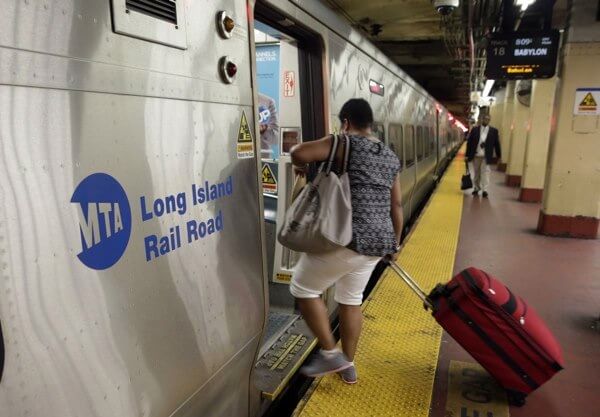By Mark Hallum
City Comptroller Scott Stringer has thrown his hat into the transit nightmare ring by releasing the results of a survey which polled hard-pressed subway riders.
The study polled 1,227 straphangers at 143 subways stations around the city for two weeks in June.
It found 74 percent of respondents reported being late for work due to transit failures, while others reported experiencing setbacks as they attempted to address personal matters. The majority of New Yorkers gave the MTA a C, D or F grade for service.
But the more hulking aspect of the study shows the economic consequences commuters have dealt with following delays or breakdowns on the tracks. While many reported being late for work alone, 22 percent said train problems had made them late for job interviews, 18 percent claimed to have been reprimanded by supervisors and 13 percent lost wages. About 2 percent had been fired.
“This is a crisis – there’s no doubt about it,” Stringer said. “Delays are rising, service is declining, and New Yorkers are frustrated like never before, What we show here is that behind every delay, there’s a human cost and behind every service disruption, there are lives affected. This report shows that inconsistent and delayed service is impacting New Yorkers in big ways and small, each and every day.”
But work was not the only issue addressed in the study. In the past three months, 65 percent of people said the MTA had made them late to pick up or drop off children. Some 29 percent of riders were late for medical appointments.
Subway services in the outer boroughs got poorer grades than Manhattan service. The survey found 45 percent of Queens residents reported significant delays “more than half of the time” or “always,” compared with 40 percent of Brooklynites, 54 percent of Bronx residents and 25 percent of Manhattanites.
“This is a challenge that did not start overnight and won’t be fixed overnight,” Stringer said. “We have a signal system that is 70 years old, cars that are some of the oldest in the world, and overcrowding that makes New Yorkers feel jam-packed like sardines.
“A failure to invest decades ago led us to where we are today. Let there be no doubt that we need an all-hands-on-deck approach now. New York City’s ability to stay on top in this century – and the next – hinges on the quality of our transportation system.”
State Sen. Michael Gianaris (D-Astoria), who has been pushing for better funding of the MTA in recent weeks in light of the delays, breakdowns and a A train derailment in Harlem, introduced legislation to exempt the MTA from a law allowing the state to take back funds from the agency.
“With misplaced priorities like these, it’s no surprise the MTA is in such a serious crisis,” state Sen. Michael Gianaris (D-Astoria). “The state should fight to secure more funds for the MTA, not divert precious MTA resources to unrelated causes.”
The legislation was unveiled following the news that $4.9 million in funds had been wicked from MTA coffers and diverted to the authority which operates state-run ski areas.
The city’s subways are currently operating under a state of emergency declared by Gov. Andrew Cuomo, who is hoping to expedite overhauls to the signal system on the city’s subways as well as new train cars. Cuomo has poured an extra $1 billion into the MTA’s capital funds.
Reach reporter Mark Hallum by e-mail at mhall



































